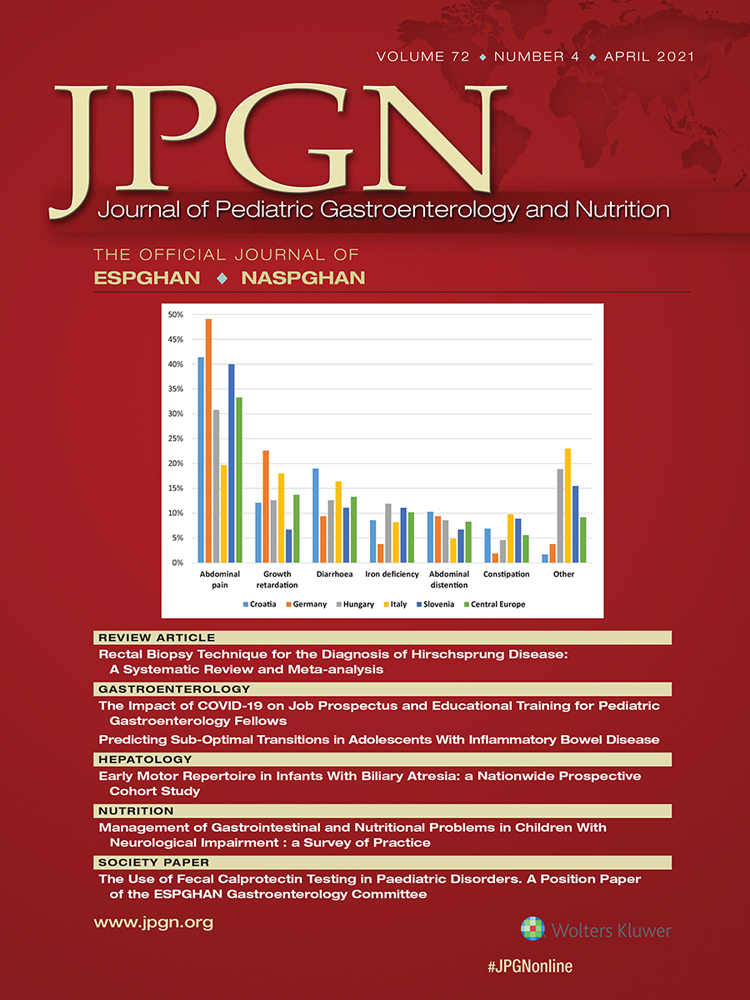The Impact of COVID-19 on Job Prospects and Educational Training for Pediatric Gastroenterology Fellows
Supplemental digital content is available for this article. Direct URL citations appear in the printed text, and links to the digital files are provided in the HTML text of this article on the journal's Web site (www.jpgn.org).
Dr Irastorza conceptualized and designed the study, drafted the survey, reviewed data analyses, and drafted the initial manuscript.
Dr Hopson conceptualized and designed the study, drafted the survey, performed data collection and analyses, and drafted the initial manuscript.
Drs Ta and Kemme assisted with the study conceptualization and design, assisted with the survey design/distribution, assisted with data analysis, and drafted the initial manuscript.
Drs Mallon and Lee assisted with survey design/revision, assisted with data analysis, and provided critical manuscript revision.
All authors approved the final manuscript as submitted and agree to be accountable for all aspects of the work.
Although this paper is produced by the NASPGHAN Training Committee it does not represent NASPGHAN policy and is not endorsed by NASPGHAN.
The authors report no conflicts of interest.
No funding was secured for this study.
ABSTRACT
Objectives:
The COVID-19 pandemic has significantly affected graduate medical education with redistribution of trainees, altered clinical care, and decreased research. For graduating trainees, there remains concern that financial stability of health systems will affect the availability of new positions and hiring practices. This survey aims to evaluate the pandemic's impact from pediatric gastroenterology fellows’ perspectives.
Methods:
An anonymous survey was distributed by e-mail from June 11 to July 1, 2020 to all North American pediatric gastroenterology and advanced training fellows. The survey was tailored for the fellows’ year of training including questions on education, clinical experience, research, and job outlook.
Results:
Of the 434 pediatric gastroenterology fellows, 145 completed the survey. Of all respondents, negative impact was reported in 52% on clinical training, 46% research projects, and 41% procedural confidence. A majority (93%) of third-year respondents had a job contract signed at the time of the survey; however, 18% of those contracts were subsequently altered with 5 respondents having job contracts rescinded due to hiring freezes. Fifty-four percent of first- and second-year fellow respondents reported concern regarding finding a job with the majority being second-year fellows (78%).
Conclusions:
The COVID-19 pandemic continues to affect the medical system and healthcare professionals. This survey identified significant impact on job acquisition for graduating pediatric gastroenterology fellows and other critical components of training, which are likely applicable to other pediatric trainees. The survey results raise questions about potential strategies to improve medical education and job search success for graduating trainees.




